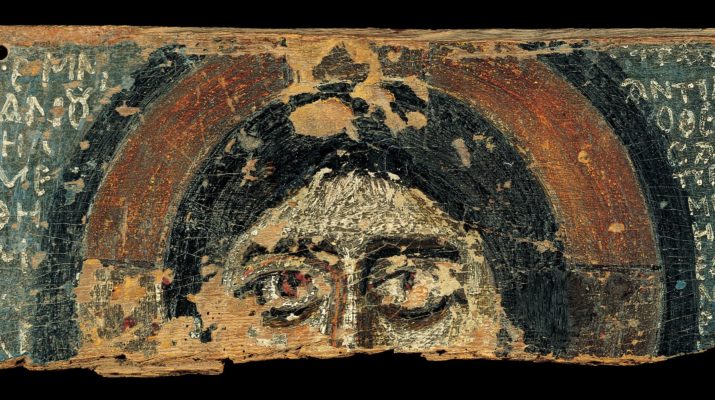Philippians 2:5-11
Holy Name of Jesus – A Women’s Lectionary
5 Let the same mind beA in you that was in ChristB Jesus,C
6 who, though he wasD in the formE of God,F
did not regard equality with God
as something to be exploited,G, H
A “let…mind be” = phroneo. From phren (diaphragm, heart, intellect, understanding; figurative for personal opinion or inner mindset; thought regulating action; sympathy, feelings, cognition); perhaps from phrao (to rein in or curb). This is to think, judge, use one’s mind, have an opinion, shape one’s opinion through action. It refers to one’s insight or inner perspective expressing itself through behavior.
B “Christ” = christos. From chrio (consecrate by anointing with oil; often done for prophets, priests, or kings). Literally, the anointed one, Christ. The Greek word for Messiah.
C “Jesus” = iesous. From Hebrew Yehoshua (Joshua, the Lord is salvation); {from YHVH (proper name of the God of Israel; the self-existent and eternal one); from havah (to become) or from hayah (to come to pass, become, be) + yasha (to deliver, defend, help, preserve, rescue; properly, to be open, wide or free, which implies being safe. So, in a causative sense, this is to free someone)}. This is Jesus or Joshua in Greek – the Lord saves or the Lord is salvation.
D “was” = huparcho. From hupo (by, under, about, under one’s authority) + archo (to rule, begin, have first rank or have political power). This is already having, something that exists or preexists, something that is present or at hand, to behave, to live.
E “form” = morphe. 3x in NT. Perhaps from the base of meros (a part or share, portion); from meiromai (to get one’s allotment or portion}. This is outward appearance or shape. It is a form that shows inner essence – outer and inner essence in harmony.
F “God” = theos. From Proto-Indo-European origins, meaning do, put, place. This is God or a god in general.
G “something to be exploited” = harpagmos. 1x in NT. From harpazo (to seize by force, to rob with violence and not stealth); from haireomai (to take, choose, prefer). This is the act of seizing or what was seized – spoil, plunder, robbery with force.
H More literally “who in form of God pre-existing, not as something to be grasped considered the being equal with God.”
7 but emptiedI himself,
taking the form of a slave,J
being born in humanK likeness.
And being foundL in human form,M
8 he humbledN himself
and became obedientO to the point of death—
even death on a cross.P
I “emptied” = kenoo. 5x in NT. From kenos (properly, something empty or void; hence, worthless, foolish, ineffective, morally void, pretentious, unreal, or false). This is properly to make something empty or void. It is something without recognition that is seen as having no value. Figuratively, this could be to neutralize, falsify, or cause something to be in vain.
J “slave” = doulos. Perhaps from deo (to tie, bind, fasten, impel, compel; to declare something against the law or prohibited). This is used for a servant or for a slave, enslaved. It refers to someone who belongs to someone else. But, it could be voluntary (choosing to be enslaved to pay of debt) or involuntary (captured in war and enslaved). It is used as a metaphor for serving Christ. Slavery was not inherited (i.e. the children of slaves were not assumed to be slaves) and slaves could buy their way to freedom. Slavery was generally on a contractual basis (that is for the duration of how long it took you to pay your debt and/or save up enough money to buy your freedom).
K “human” = anthropos. Probably from aner (man, male, husband) + ops (eye, face). This is human, humankind. Used for all genders.
L “found” = heurisko. This is to find, learn, or obtain. It is to discover something, which generally implies a period of searching for it. This is to find in a literal or figurative sense. This is where the word “heuristic” comes from.
M “form” = schema. 2x in NT. From echo (to have, hold, possess). This refers to the external shape, appearance, figure, or form. Figuratively, it can refer to manner, habit, or external condition.
N “humbled” = tapeinoo. 14x in NT. From tapeinos (low in position, depressed, low in circumstance; fig humiliated, low in spirit). This is bringing someone or something low. Figuratively to humble or humiliate – to depress or abase.
O “obedient” = hupekoos. 3x in NT. From hupakouo (to listen, obey, answer; attentive hearing and obeying what was heard; being compliant, obeying authority); {from hupo (by, under, about, under one’s authority) + akouo (to hear or listen; to understand by hearing)}. This is listening, being obedient, or being submissive.
P “cross” = stauros. From the same as histemi (to stand, cause to stand). This is an upright stake, cross. Literally refers to the horizontal beam of a Roman cross, generally carried by the one convicted to die.
9 Therefore God also highly exaltedQ him
and gaveR him the nameS
that is above every name,
Q “highly exalted” = huperupsoo. 1x in NT. From huper (over, above, beyond, concerning) + hupsoo (to lift up, make great, exalt); {from hupsos (height, high, altitude, sky, heaven, dignity); from hupsi (on high, aloft)}. This is highly exalting, elevating beyond, extol to the highest measure.
R “gave” = charizomai. From charis (grace, kindness, favor, gratitude, thanks; being inclined to or favorable towards – leaning towards someone to share some good or benefit; literal, figurative, or spiritual; grace as abstract concept, manner, or action); from chairo (to rejoice, be glad; used to say hello; properly, delighting in the grace of God or experiencing God’s favor); from char- (to extend favor, lean towards, be inclined to be favorable towards). This is to extend grace or favor, to grant forgiveness, to pardon or rescue.
S “name” = onoma. May be from ginosko (know, recognize, learn from firsthand experience). This is a name, authority, cause, character, fame, reputation. The name was thought to include something of the essence of the person so it was not thought to be separate from the person.
10 so that at the name of Jesus
every knee should bend,
in heavenT and on earthU and under the earth,V
11 and every tongue should confessW
that Jesus Christ is Lord,X
to the gloryY of God the Father.
T “in heaven” = epouranios. 19x in NT. From epi (on, upon, what is fitting) + ouranos (air, sky, the atmosphere, heaven; the sky that is visible; the spiritual heaven where God dwells; implies happiness, power, and eternity); {perhaps to oros (mountain, hill)}. This is heavenly, celestial, high, heavenly one, heavenly thins. It is the heavenly sphere in contrast to the earthly one, the place of spiritual activity. Figuratively, it can mean divine or spiritual. Properly, this describes that which is fitting from heaven’s perspective.
U “on earth” = epigeios. 7x in NT. From epi (on, upon, what is fitting) + ge (earth, land, soil, region, country, the inhabitants of an area). This is earthly or worldly. It can mark the earth in contrast to the sky or the earth in contrast to heaven. It can include all of physical life or describe the moral character of the world.
V “under the earth” = katachthonios. 1x in NT. From kata (down, against, according to, throughout, among, daily) + chthon (earth, ground). This is under the earth or infernal. It can refer to the realm where the departed are.
W “confess” = exomologeo. 10x in NT. From ek (from, from out of) + homologeo (to agree, speak the same, declare, promise, praise, celebrate; to align with, express the same conclusion, endorse); {from homologos (of one mind); {from homos (the same) + lego (to say, speak, tell)}}. This is agree, consent, or acknowledge. It can also be confess, give thanks, or praise. It includes an open, public, unabashed declaration.
X “Lord” = kurios. From kuros (authority, supremacy). This is a respectful address meaning master or sir. It refers to one who has control or power greater than one’s own. So, it was also applied to God and Jesus as Master or Lord.
Y “glory” = doxa. From dokeo (to have an opinion, seem, appear, suppose; a personal judgment; to think); from dokos (opinion). This is literally something that evokes a good opinion – something that connects to our understanding of intrinsic worth. The ultimate expression of this is, of course, God and God’s manifestation. So, this is opinion, honor, and dignity, but also praise, glory, renown, and worship.
Image Credit: “Christ,” artist unknown, from 600-799.




